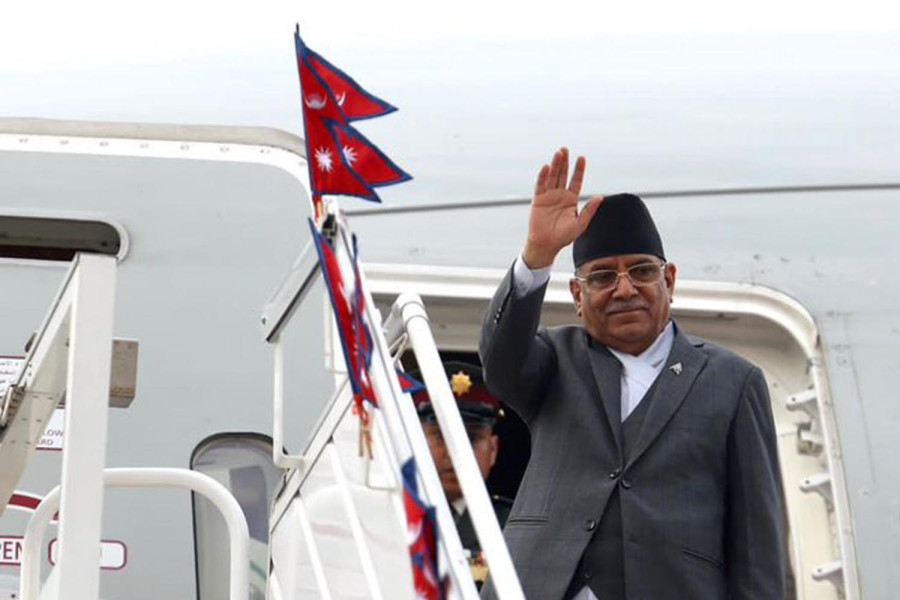Editorial
PM’s China calling
There have been no substantive results despite the two countries reaching landmark agreements in recent years.
Prime Minister Pushpa Kamal Dahal is scheduled to visit China from September 23. As Dahal flies to the northern neighbour directly from New York after attending the United Nations General Assembly, he will first attend the opening ceremony of the 19th Asian Games in Hangzhou as a guest. Then, the prime minister will begin his official engagements in Beijing and other cities of the host country. As officials at the Ministry of Foreign Affairs and other ministries are busy finalising preparatory works, Dahal met former prime ministers, former foreign ministers and foreign policy experts on Sunday seeking their advice on what should be Nepal’s priority.
After the end of the Covid pandemic, bilateral interactions between the two countries have thickened. A team of CPN-UML leaders led by the party’s general secretary Shankar Pokharel is currently in China. A group of CPN (Maoist Centre) leaders led by the party’s vice-chair Agni Sapkota visited the country in May. Senior Chinese leaders such as Li Zhanshu, head of the Standing Committee of the Chinese National People’s Congress, visited Nepal last September while Yuan Jiajun, Politburo member of the Communist Party of China, came earlier in July. Likewise, Chinese expert teams who play an important role in advising China’s leadership in Beijing on Nepal and South Asian affairs have also stepped up their engagements in Kathmandu.
It was just before the pandemic that heads of the two countries paid reciprocal state visits. Nepal’s President Bidya Devi Bhandari visited China in April 2019 and Chinese President Xi Jinping came to Nepal in October the same year. Also, exchange of visits at the prime minister’s and foreign minister’s levels has been taking place on a regular basis. Thus the status of exchange of visits is satisfactory in comparison to similar arrangements with other big powers. Given their meetings with our top leaders on different occasions, Chinese President Xi and other leaders are familiar with our major issues and concerns. China’s Foreign Minister Wang Yi is a well-informed Chinese leader in Nepal. This presents an opportunity for Nepal’s political leadership to capitalise on the relationships.
But we haven’t been able to produce substantive results despite the two countries reaching landmark agreements in recent years. In 2016, they signed vital transit and transport accords. Later, in April 2019, during President Bhandari’s visit, they signed the Protocol on Implementing Agreement on Transit and Transport. The agreements ensured Nepal an access to seven Chinese sea and land ports for third-country but these deals are thus far limited to paper. And Kathmandu is blamed for its failure to push for their implementation.
It is in this context that the prime minister is visiting China. It goes without saying that Nepal should work hard to benefit from our next door neighbour that is the world's second-largest economy. While we need implementation of important accords and other major development projects, successive prime ministers often try to utilise bilateral visits for immediate mileage and personal gains. This time around, the prime minister should mainly focus on implementing important accords, expediting major projects and laying the grounds for an increase in exports to the huge market next door. Winning the confidence of our age-old friend and translating that trust to boost bilateral trade should be the prime minister’s priority.



 16.12°C Kathmandu
16.12°C Kathmandu














